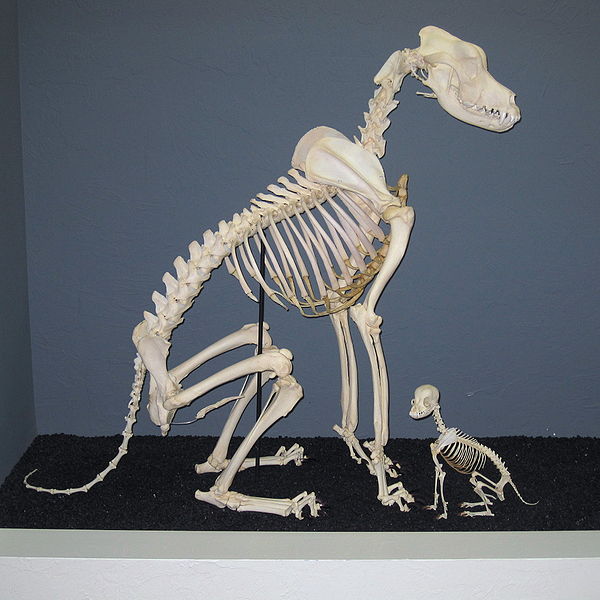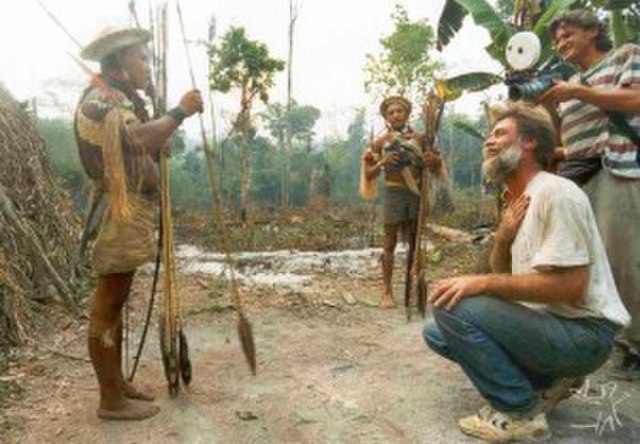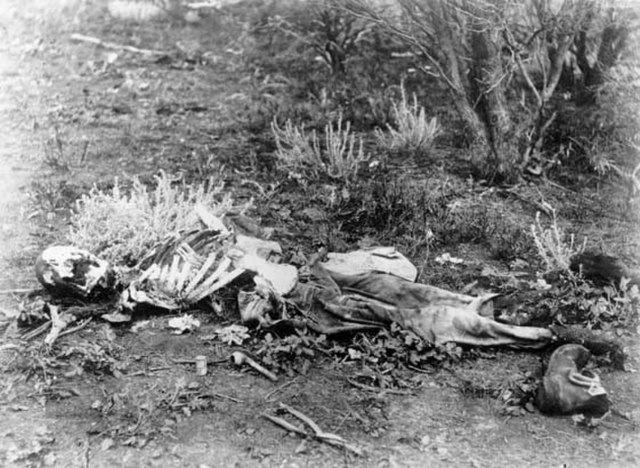Osteology is the scientific study of bones, practised by osteologists. A subdiscipline of anatomy, anthropology, and paleontology, osteology is the detailed study of the structure of bones, skeletal elements, teeth, microbone morphology, function, disease, pathology, the process of ossification from cartilaginous molds, and the resistance and hardness of bones (biophysics).
Comparative Osteology Room in the La Plata Museum, Argentina.
Comparison of Great Dane and Chihuahua skeletons at the Museum of Osteology, Oklahoma City, Oklahoma.
Anthropology is the scientific study of humanity, concerned with human behavior, human biology, cultures, societies, and linguistics, in both the present and past, including past human species. Social anthropology studies patterns of behavior, while cultural anthropology studies cultural meaning, including norms and values. A portmanteau term sociocultural anthropology is commonly used today. Linguistic anthropology studies how language influences social life. Biological or physical anthropology studies the biological development of humans.
An anthropologist with indigenous American people
Bernardino de Sahagún is considered to be the founder of modern anthropology.
Forensic anthropologists can help identify skeletonized human remains, such as these found lying in scrub in Western Australia, c. 1900–1910.
A Punu tribe mask, Gabon, Central Africa






